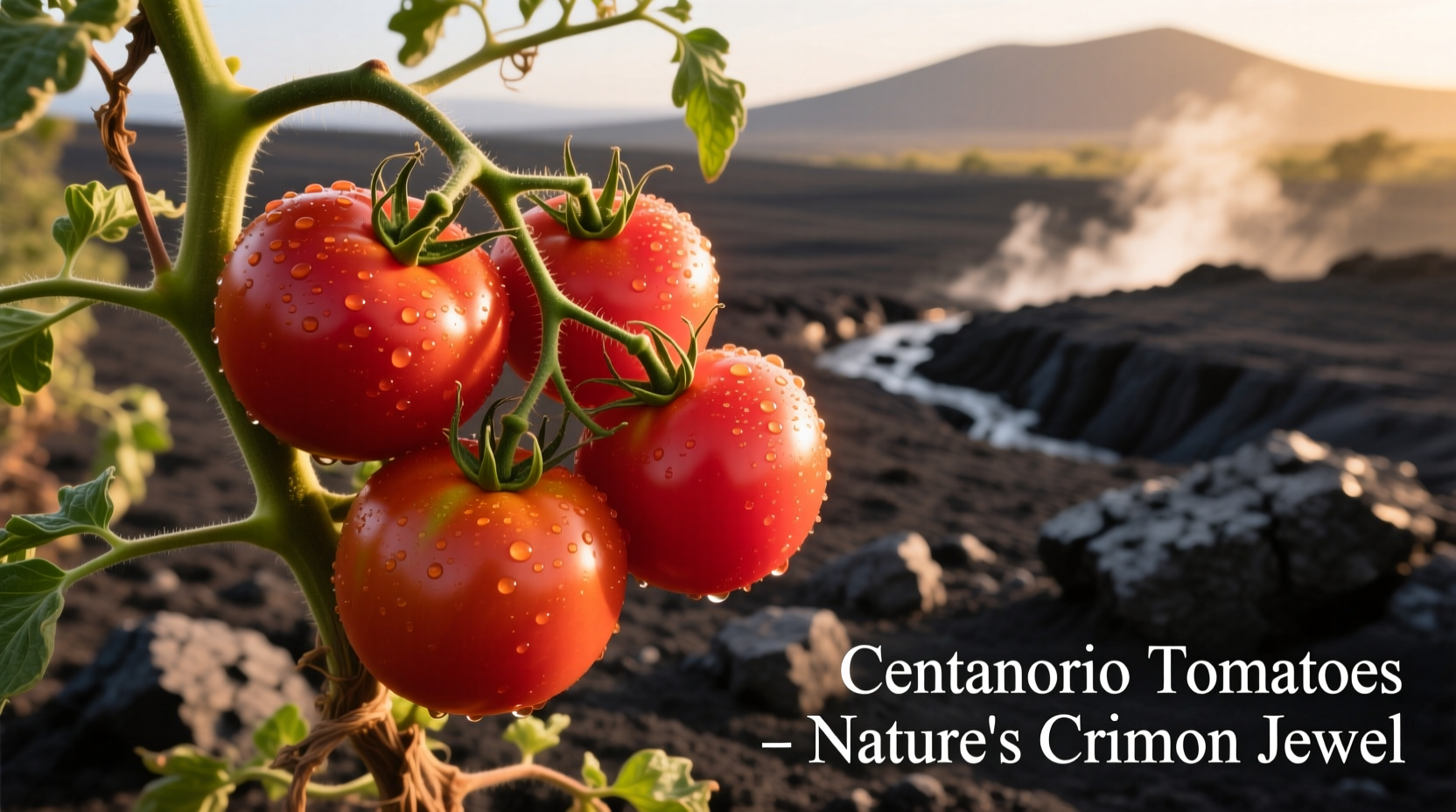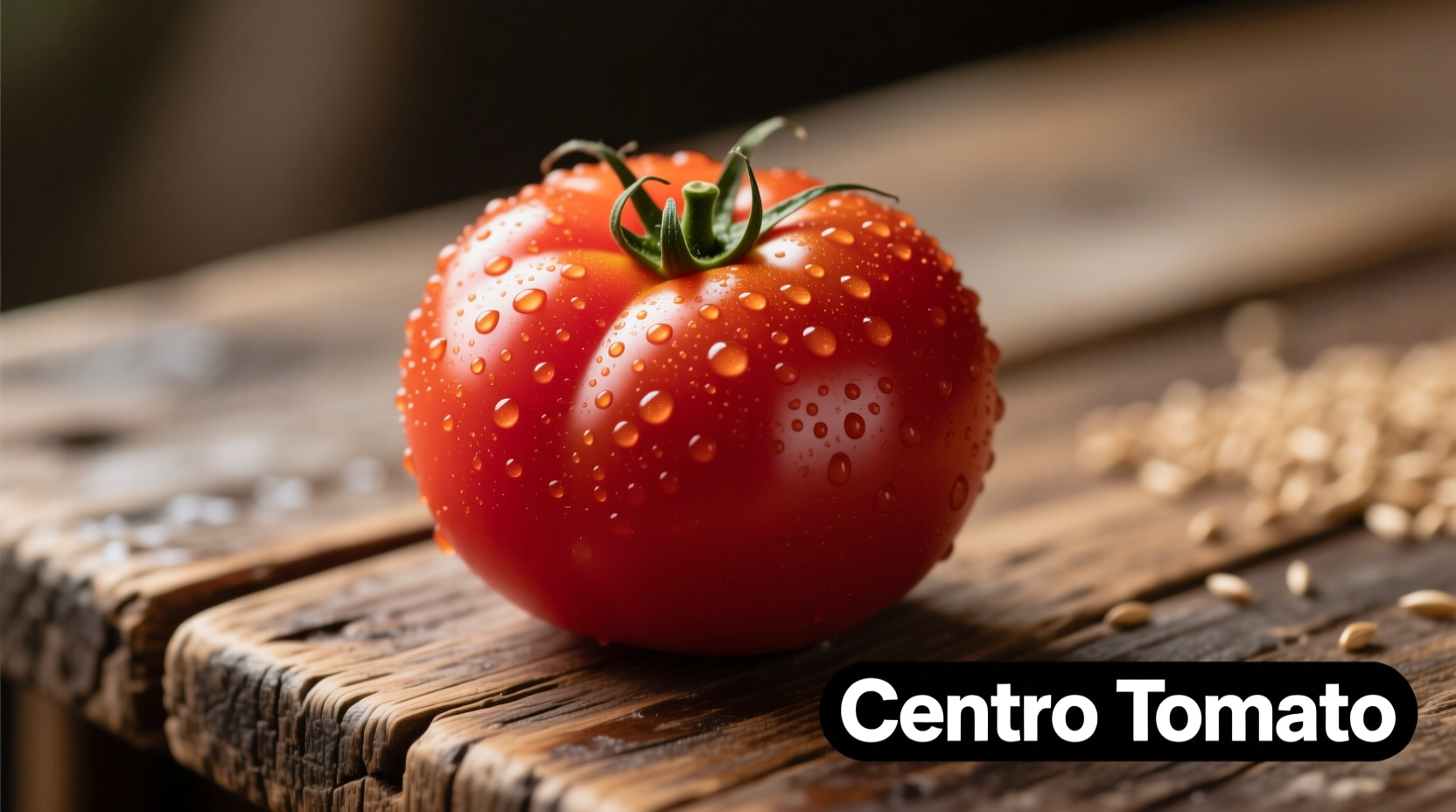Centenario tomatoes, often referred to as "cento" in culinary contexts, are a premium Italian plum tomato variety prized for their rich flavor, low moisture content, and perfect balance of sweetness and acidity. These DOP-certified tomatoes grow in Italy's volcanic soil near Mount Vesuvius, producing the ideal fruit for authentic tomato sauces, preserves, and Mediterranean dishes.
What Exactly Are Centenario Tomatoes?
Despite common confusion, "cento" isn't a standalone tomato variety but typically refers to Centenario tomatoes—a specific type of San Marzano dell'Agro Sarnese-Nocerino, protected under Italy's Denominazione di Origine Protetta (DOP) certification. These elongated, pointed plum tomatoes feature thick flesh, fewer seeds, and a deep red color that transforms into vibrant sauces with complex flavor.

Why Chefs Prefer Centenario Tomatoes for Sauce Making
The secret to Centenario tomatoes' culinary superiority lies in their unique growing conditions and biological characteristics:
- Natural sugar concentration of 5-6% (higher than standard plum tomatoes)
- Lower water content (approximately 92% vs 94% in regular tomatoes)
- Higher lycopene levels (up to 25% more than non-DOP varieties)
- Perfect pH balance between 4.2-4.5 for optimal flavor development
| Tomato Variety | Sugar Content | Water Content | Best Culinary Use |
|---|---|---|---|
| Centenario (DOP) | 5-6% | 92% | Pasta sauces, preserves |
| Standard San Marzano | 4-5% | 93% | General cooking |
| Roma | 3-4% | 94% | Canning, roasting |
| Beefsteak | 2-3% | 95% | Sandwiches, salads |
Centenario Tomatoes Through History: A Brief Timeline
The cultivation of these exceptional tomatoes follows a fascinating historical path:
- 1875: First San Marzano seeds planted in Sarno River valley near Naples
- 1993: European Union grants DOP status to authentic San Marzano tomatoes
- 2009: Strict production regulations established for Centenario certification
- 2015: Volcanic soil requirements formalized in DOP specifications
- Present: Only 12 certified producers can legally grow authentic Centenario tomatoes
Practical Applications: When to Choose Centenario Tomatoes
Understanding the specific contexts where Centenario tomatoes shine helps home cooks make informed decisions:
Ideal Uses
- Traditional Neapolitan pizza sauce (no cooking required)
- Slow-simmered ragù and meat sauces
- Preserved whole in glass containers
- High-end restaurant tomato bases
Less Suitable Applications
- Raw salads (too dense texture)
- Quick-cooking applications (flavor needs time to develop)
- Budget-conscious large-batch cooking
- Recipes requiring high liquid content
Nutritional Profile: More Than Just Great Taste
Centenario tomatoes offer significant health benefits backed by agricultural research from the University of Naples:
- Rich in lycopene (up to 25mg per 100g) with enhanced bioavailability due to volcanic soil minerals
- Higher vitamin C content (18mg per 100g vs 14mg in standard tomatoes)
- Natural electrolyte balance with optimal potassium-to-sodium ratio
- Contains unique flavonoids developed in response to volcanic soil conditions
According to research published by the University of Naples Department of Agriculture, the volcanic soil in the Sarno River valley contributes specific mineral compounds that enhance both flavor and nutritional profile of DOP-certified tomatoes.
Where to Find Authentic Centenario Tomatoes
Due to frequent counterfeiting, identifying genuine Centenario products requires careful attention:
- Look for the official DOP certification seal with unique identification number
- Check for "Pomodoro San Marzano dell'Agro Sarnese-Nocerino DOP" on packaging
- Authentic products list specific farm location in Campania region
- Beware of "product of Italy" claims without DOP certification
The Consorzio del Pomodoro San Marzano maintains a verified producer list updated quarterly to help consumers identify authentic sources. Approximately 70% of products labeled as San Marzano in international markets lack proper certification.
Storage and Preparation Tips from Professional Kitchens
Maximize your Centenario tomato investment with these chef-recommended techniques:
- Store unopened cans in cool, dark place for up to 24 months
- Once opened, transfer to glass container and refrigerate for 5-7 days
- For sauces, crush by hand rather than blending to maintain texture
- Add a pinch of baking soda only if absolutely necessary to reduce acidity
- Never drain liquid from canned Centenario tomatoes—it contains concentrated flavor
Frequently Asked Questions
What's the difference between Centenario and regular San Marzano tomatoes?
Centenario tomatoes are a specific DOP-certified subset of San Marzano tomatoes grown exclusively in the Sarno River valley with volcanic soil. They must meet stricter standards for shape, sugar content, and growing practices than standard San Marzano varieties.
Can I grow Centenario tomatoes outside Italy?
While you can grow San Marzano-type seeds elsewhere, authentic Centenario tomatoes require the specific volcanic soil composition and microclimate of Italy's Sarno River valley. Attempts to replicate these conditions elsewhere typically produce tomatoes with different flavor profiles and characteristics.
Why are Centenario tomatoes better for sauce making?
Their lower water content (92% vs 94% in standard tomatoes), higher natural sugar concentration (5-6%), and thicker flesh create richer, more concentrated sauces without requiring lengthy reduction times. The balanced acidity also allows flavors to develop more complexly during cooking.
How can I verify authentic Centenario tomato products?
Look for the official DOP certification seal with a unique identification number, check for "Pomodoro San Marzano dell'Agro Sarnese-Nocerino DOP" on packaging, and verify the producer against the Consorzio's official list. Authentic products always specify the exact farm location in Campania.
Are Centenario tomatoes worth the higher price?
For authentic Italian sauces where tomato flavor is the star, yes. The concentrated flavor means you use less product, and the superior texture creates restaurant-quality results without additives. For dishes where tomatoes play a supporting role, standard plum tomatoes may suffice.











 浙公网安备
33010002000092号
浙公网安备
33010002000092号 浙B2-20120091-4
浙B2-20120091-4